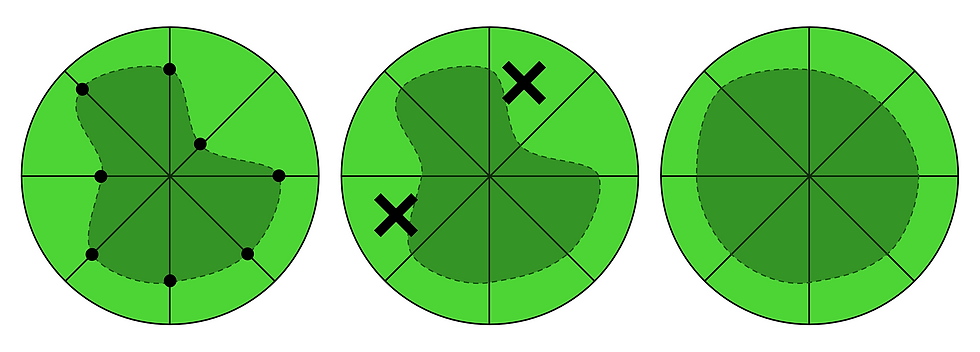Why do I feel out of balance?
- Lisa Jones
- Jun 1, 2017
- 2 min read

When we are not feeling 100% we use phrases like; “I feel a bit off”, “I feel off kilter”, “I feel out of balance”. When we think about balance we sometimes talk about work and life and we know where we are struggling, but if we’re not sure what’s wrong we can break those categories down further we might be able to fine tune our life to feel better.
When we are physically unwell we know exactly what is throwing us off balance and so this exercise excludes physical health and assumes that in the absence of illness or disease we are eating, sleeping and exercising well.
Consider the different aspects of your life and write them down. Keep the categories broad enough to keep the number under 10. For example, you might choose;
Relationships
Work
Personal Growth
Friendships
Charity Work
Select the topics that you value the most in your life. It might be useful to think back to a time when you felt happier and more balanced and think of the qualities you had in your life then.

When you have about 8 categories draw them out as a wheel with each segment being roughly equal.
Now write your values in each segment. Score each value between 1 and 10 by considering carefully how fulfilled, content, harmonious and happy you are. 10 is great 1 is not good at all. 10 will be on the outer circle and 1 would be near the centre of the wheel.
Along the “spokes” of the wheel, mark where you have scored, on the spoke to the right of your value segment going clockwise, by drawing a dot. Now join the dots together as I have done in my example, shown by the dark green area. Immediately you can see where the wheel is wobbly and out of balance.
In my example, by focusing more time and energy on 2 aspects of my life, I may be able to promote more harmony and balance.

As you use this tool to determine where you need to focus you might try adding more segments to refine and pinpoint exactly where you need support or focus.
Here are some more examples of segments for you to choose from:
Relationships
Friends
Partner
Family
Parents
Children
Work
Clients/Suppliers
Money
Satisfaction
Hours
Rapport with Superiors
Rapport with Colleagues
Skills
Personal Growth
Learning
Therapy
Self-reflection
Spirituality
Contribution
Giving to Charity
Voluntary Work
Helping others
Recreation
Time alone
Time with others
Hobbies
Relaxation
Holidays
Creativity
Arts



Comments